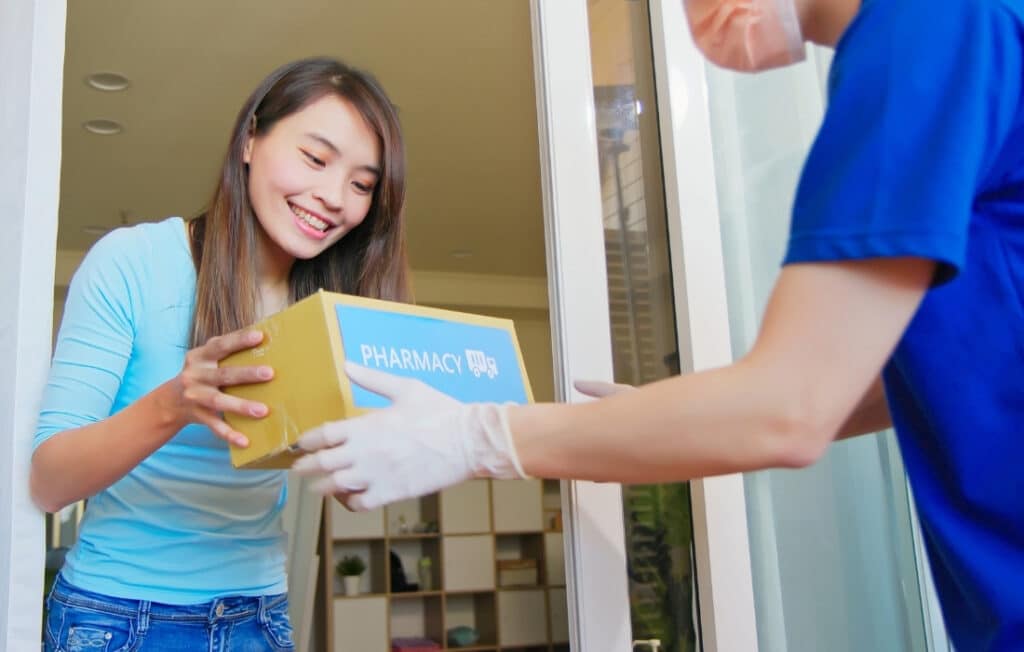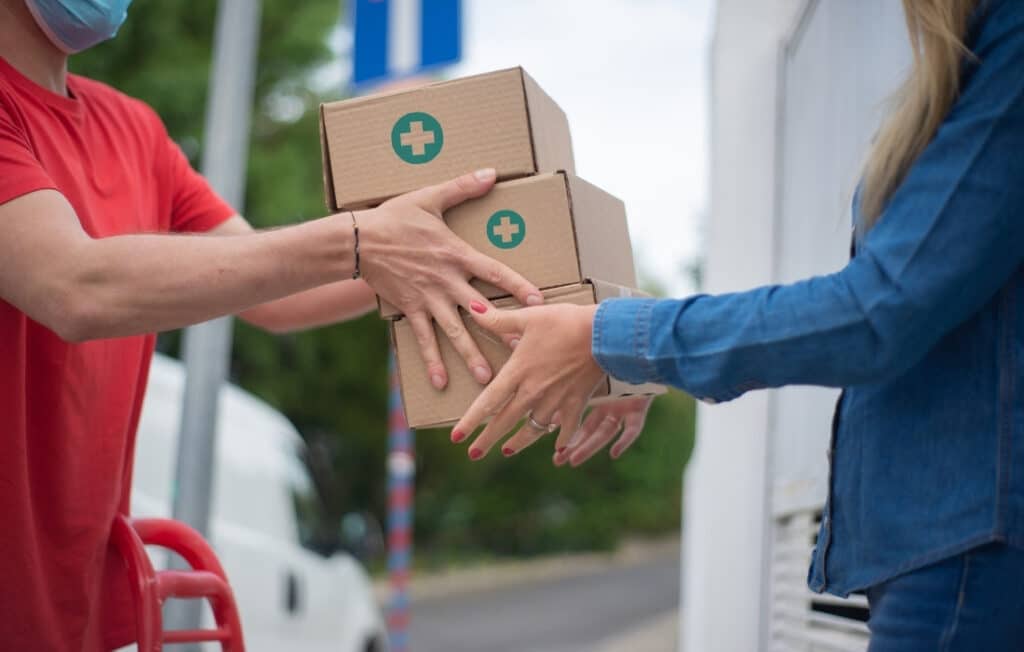Specialty infusion pharmacies provide injectable and intravenous medications for complex conditions. Learn about their services for storing, delivering, and administering infused drugs.
A specialty infusion pharmacy dispenses medications that are given by injection or intravenously. These infused drugs often require special handling, storage at certain temperatures, and careful administration.
What is a specialty infusion pharmacy?
A specialty infusion pharmacy provides infused or injectable medications that require special handling, storage, and administration. These pharmacies serve patients with conditions like cancer, immunologic disorders, and more who need intravenous or subcutaneous medications.
| Service | Details |
| Medication access | Dispensing and delivery coordination |
| Insurance navigation | Benefits investigation, prior authorization assistance |
| Affordability resources | Copay cards, patient assistance programs |
| Clinical support | 24/7 on-call team for questions/adverse events |
| Education | Drug administration, storage, handling training |
| Delivery | Coordination of medication & supplies shipment |
Specialty infusion pharmacies provide end-to-end services to give patients access to complex infused medications, including financial assistance, insurance coordination, clinical support, delivery logistics, and patient training.
What services do specialty infusion pharmacies provide?
Specialty infusion pharmacies offer services to ensure patients can access and adequately use complex injectables and IV medications.
- They assist patients with insurance benefits investigations, prior authorizations, appeals, and claims processing.
- These pharmacies also help patients find financial assistance through copay cards, patient assistance programs, and referrals to charitable foundations.
- They offer 24/7 clinical support via phone in case any urgent issues arise with therapy.
- Specialty infusion pharmacies educate patients on medication administration, storage, handling, disposal, and potential side effects.
- They coordinate the delivery of medications, pumps, tubing, needles, and other supplies needed for infusion therapy.
How do I get medications from a specialty infusion pharmacy?
After your doctor prescribes an infused medication, they send the prescription to a specialty infusion pharmacy that handles the drug. The pharmacy gets insurance approval, contacts you for delivery, and ships your medication/supplies to your home or clinic.
- The prescriber electronically sends your prescription to the specialty pharmacy.
- Pharmacy staff conduct benefits investigations and secure prior authorization from your insurance.
- They contact you to arrange medication delivery once approval is secured.
- Medications are packaged with cold packs as needed and shipped overnight to your home/location.
- The pharmacy coordinates refills and new prescriptions as your therapy progresses.
What is infusion therapy?

Infusion therapy involves fluids, nutrients, or medication into the body through a vein. It allows controlled delivery of potent drugs that require time to infuse completely. Infusions are given at home, in clinics, or hospitals.
- Intravenous or IV infusion therapy delivers medication directly into the bloodstream via a vein.
- Subcutaneous infusion therapy delivers medication into fatty tissue under the skin.
- Infusions allow high doses of drugs to be delivered over hours versus quick injection.
- It is used when oral medication options are not feasible or fast infusion could cause harm.
- Infusion therapy treats gastrointestinal diseases, infections, cancer, immune disorders, and more.
How often do infusion medications need to be administered?
The drug protocol and patient condition determine the frequency of infusion therapy. Some medications are infused daily, while others only require weekly, monthly, or quarterly administration.
- Based on the prescription, chemotherapy regimens often involve infusions every 2-4 weeks.
- Antibiotics to treat serious infections may need daily administration for a set duration.
- IVIG for immunodeficiencies is typically every 3-4 weeks.
- Osteoporosis drugs are usually quarterly dosing.
- Interval adjusts based on lab values, disease progression, side effects, and tolerability.
How are infused medications administered?
Infused medications are administered intravenously or subcutaneously. IV infusions use a catheter into a vein connected to an infusion pump or drip chamber. Subcutaneous injections use a small needle into fatty tissue.
| Method | Equipment used |
| Intravenous | IV catheter, infusion pump |
| Subcutaneous | Small sub-q needles |
| Peripheral IV | Veins of arm, hand |
| Central line | PICC line, port |
| Pumps | Syringe, ambulatory, cassette |
Medications are infused into the bloodstream intravenously using catheters, pumps, and lines or injected subcutaneously using tiny needles. Pumps control and regulate flow rates.
What kind of training is required to administer infused medications at home?

Patients or caregivers administering home infusions must receive thorough training from a home health nurse on infusing medication safely and adequately.
- Proper handling, preparation, administration, and disposal techniques must be demonstrated.
- Instruction is provided on infusion pump operation and troubleshooting errors/alarms.
- Education covers aseptic technique, site care, infection control, side effects, and emergency response.
- Ongoing support is available 24/7 from the specialty pharmacy in case any issues arise.
- For high-risk drugs like chemotherapy, extra precautions are required and verified.
How are specialty-infused medications shipped?
Specialty pharmacies use climate-controlled, secure containers and expedited shipping to protect temperature-sensitive infused drugs during transport.
| Shipping Practice | Purpose |
| Climate-controlled | Maintain safe temps |
| Expedited courier | Speedy delivery |
| Packaging | Insulation, cool packs |
| Monitoring | Temperature sensors |
| Timing | Coordinate with patient |
| Labeling | Handling instructions |
Specialty pharmacies use fast shipping in climate-controlled, monitored containers to protect temperature-sensitive infused drugs during transportation.
What is a specialty pharmacy courier?

A specialty pharmacy courier is a delivery driver who hand delivers medications requiring special handling directly to patients or facilities.
- Couriers ensure timely, controlled delivery and continuous custody of sensitive infused drugs.
- They provide documentation of the chain of custody during transportation and at delivery.
- Couriers have specialized vehicles, cold storage, and security protocols for transport.
- Local courier service provides same-day or next-day delivery within geographic regions.
- Couriers ensure patients get refrigerated drugs like biologics without disrupted climate control.
Specialty infusion pharmacies provide invaluable services for storing, delivering, and administering specialty-infused medications. Their expertise helps patients with chronic illnesses get the treatment they need.
Contact the team at Acceso to book a consultation and connect with a specialty infusion pharmacy that can provide the care you need.









